- The faculty, staff, and administration of Blackhawk Technical College, an institution of higher education, provide for the future of our community through excellence in technical education.
School Highlights
Blackhawk Technical College serves 5,422 students (15% of students are full-time).
The college's student:teacher ratio of 16:1 is same as the state community college average of 16:1.
Minority enrollment is 30% of the student body (majority Hispanic), which is less than the state average of 35%.
Quick Stats (2025)
- Enrollment: 5,422 students
- In-state tuition: $3,965
- Out-state tuition: $5,853
- Student:teacher ratio: 16:1
- Minority enrollment: 30%
- Source: Verified school update
Top Rankings
Blackhawk Technical College ranks among the top 20% of public schools in Wisconsin for:
Category
Attribute
Affordability
School Overview
The teacher population of 333 teachers has stayed relatively flat over five years.
Blackhawk Technical College
(WI) Community College Avg.
Carnegie Classification
Associate's Colleges: High Career & Technical-Mixed Traditional/Nontraditional
Associate's Colleges: High Career & Technical-Mixed Traditional/Nontraditional
Institution Level
At least 2 but less than 4 years
At least 2 but less than 4 years
Institution Control
Public
Public
Total Faculty
333 staff
419 staff
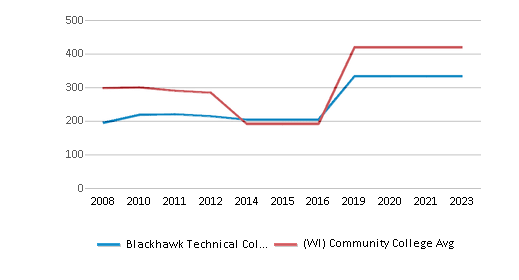
School Calendar
Student Body
The student population of Blackhawk Technical College has grown by 140% over five years.
The student:teacher ratio of 16:1 has increased from 7:1 over five years.
The Blackhawk Technical College diversity score of 0.49 is less than the state average of 0.55. The school's diversity has grown by 14% over five years.
Total Enrollment
5,422 students
5,109 students
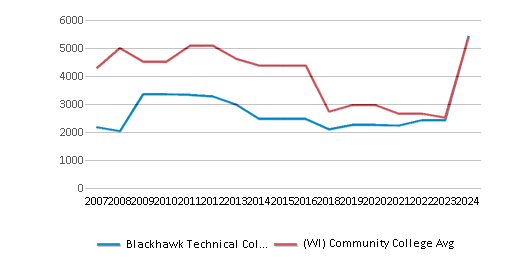
Student : Teacher Ratio
16:1
16:1
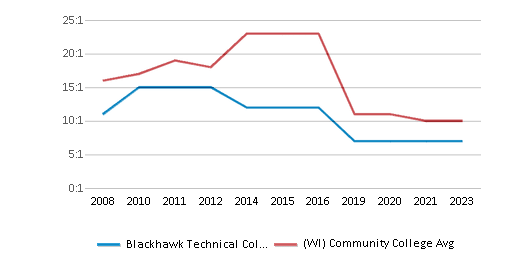
# Full-Time Students
798 students
798 students
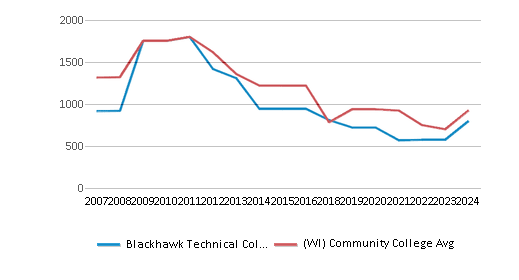
# Part-Time Students
4,624 students
4,385 students
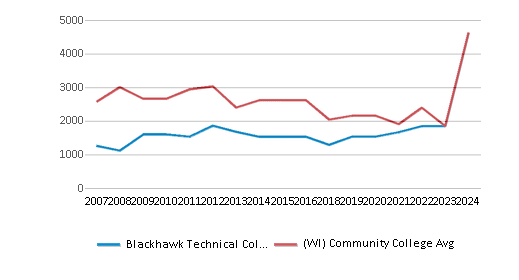
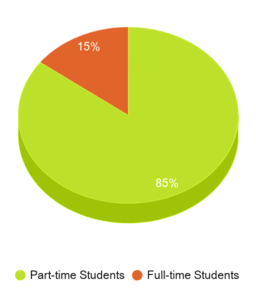
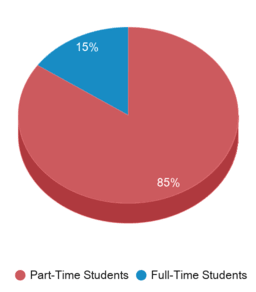
# Enrollment Undergraduate
542 students
373 students
# Full-Time Undergraduate Students
798 students
798 students
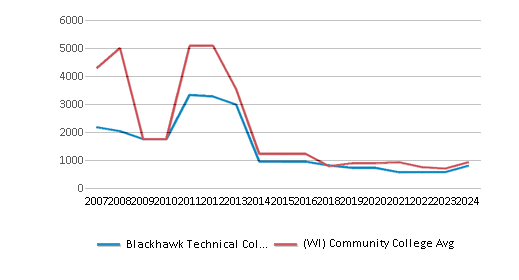
# Full-Time Graduate Students
n/a
27 students
# Part-Time Undergraduate Students
4,624 students
4,624 students
# Part-Time Graduate Students
n/a
40 students
Total Dormitory Capacity
n/a
148 students
% American Indian/Alaskan
n/a
1%
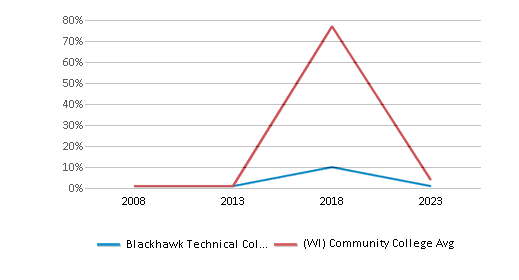
% Asian
2%
4%
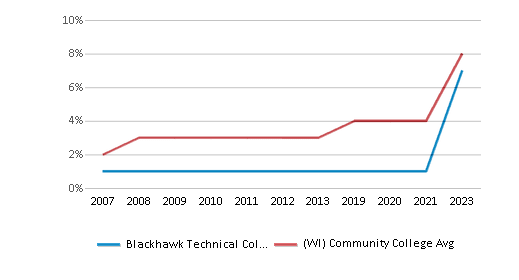
% Hispanic
13%
10%
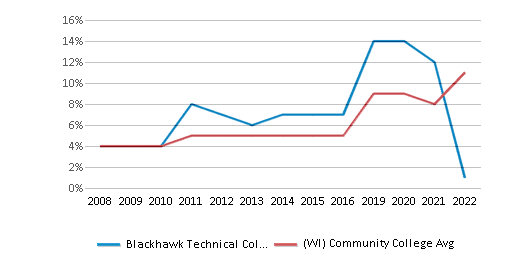
% Black
6%
9%
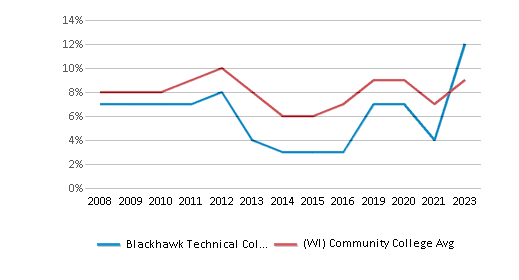
% White
70%
65%
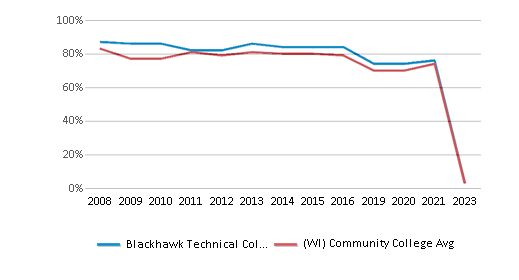
% Hawaiian
n/a
n/a
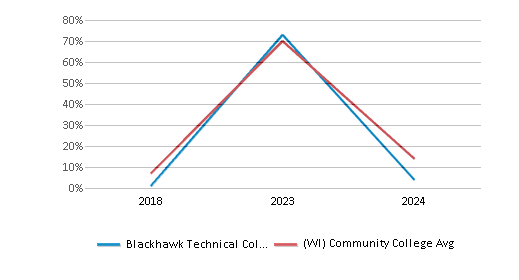
% Two or more races
4%
3%
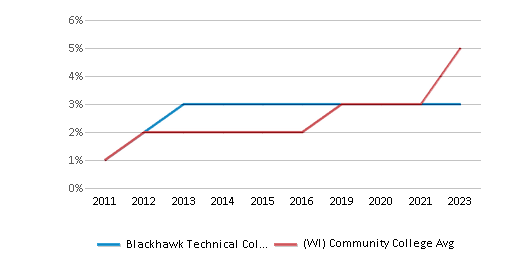
% Non Resident races
1%
n/a
% Unknown races
4%
8%
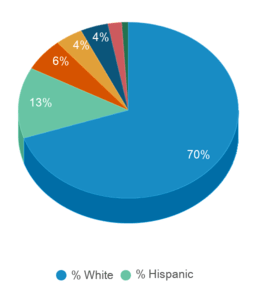
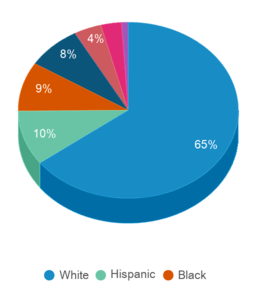
Diversity Score
0.49
0.55
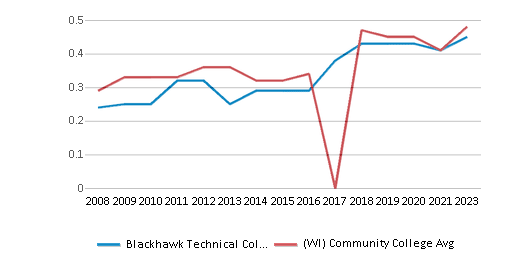
College Completion Rate (Students who graduate in less than 4 years)
0.4194%
0.4772%
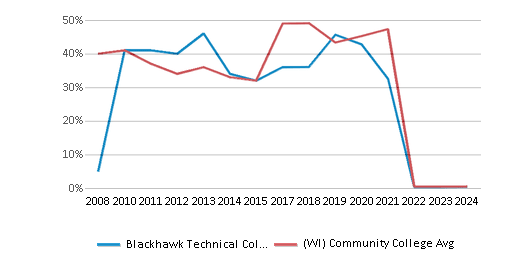
College Completion Rate (Students who graduate in 4 years or more than 4 years)
n/a
0.2192%
Average Graduate Earnings (10 Years)
$32,800
$34,300
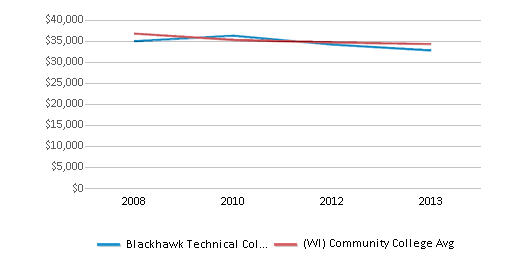
Tuition and Acceptance Rate
The public in-state tuition of $3,965 is less than the state average of $4,194. The in-state tuition has declined by 11% over four years.
The public out-state tuition of $5,853 is less than the state average of $6,373. The out-state tuition has declined by 11% over four years.
In-State Tuition Fees
$3,965
$4,194
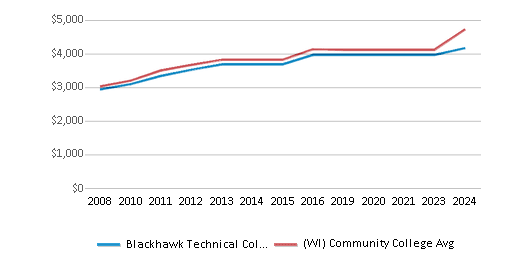
Out-State Tuition Fees
$5,853
$6,373
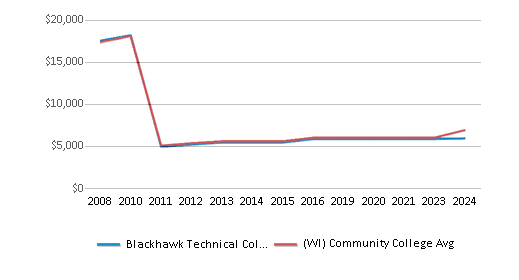
% Students Receiving Some Financial Aid
80%
76%
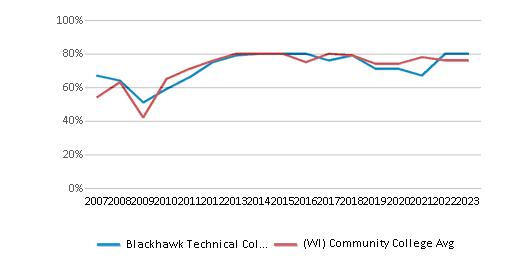
Median Debt for Graduates
$9,308
$11,250
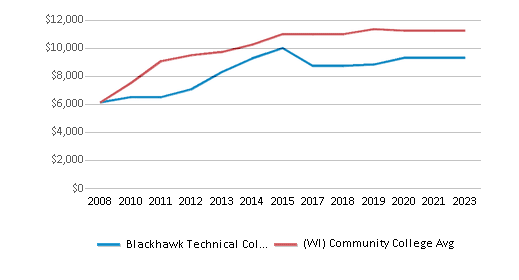
Median Debt for Dropouts
$3,964
$5,500
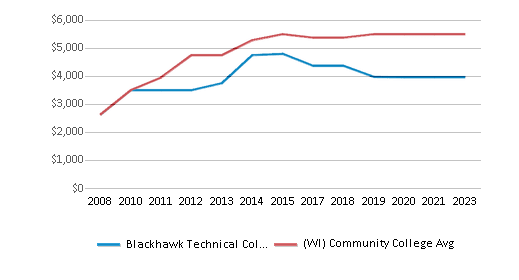
Acceptance Rate
n/a
88%
ACT Composite
n/a
21
ACT English
n/a
19
ACT Math
n/a
20
Source: 2024 (or latest year available) Integrated Postsecondary Education Data System (IPEDS)
School Notes
- The Blackhawk Technical College provides education for employment by offering comprehensive occupational skills training which enables students to participate in the work force through Associate Degree, Technical Diploma, Certificate, and Apprenticeship programs; Training, Retraining, and Upgrading for entry, retention, or advancement in a vocational or technical field; General Education, Basic Education and Transfer Opportunities. The Blackhawk Technical College Central Campus is located midway between Beloit and Janesville. Situated on over 80 acres of partially wooded prairie, the campus is home for most of BTC's programs and services. The campus is easily accessible from Prairie Road and Highway 51. This comprehensive technical college facility comprises over 200,000 square feet. It includes instructional classrooms, shops and labs for accounting, marketing, word processing, administrative assistant, legal secretary, fire science, criminal justice, child care services, HVAC/R, welding, and machine tool. Also located on the Central Campus is a technical center integrating labs for electronics, electro-mechanical and mechanical design; and a health occupations complex for nursing, nursing assistant, dental assistant and hygiene, radiography, and health unit coordinator. A technical library; media production and telecommunications center; child care center; bookstore; and food service, with seating for 600 are also housed on the Central Campus. Seminar and teleconferencing facilities are also available. Blackhawk Technical College is accredited by the Higher Learning Commission.
Frequently Asked Questions
How much does Blackhawk Technical College cost?
Blackhawk Technical College's tuition is approximately $3,965 for In-State students and $5,853 for Out-State students.
What schools are Blackhawk Technical College often compared to?
Blackhawk Technical Collegeis often viewed alongside schools like Madison Area Technical College by visitors of our site.
What is Blackhawk Technical College's ranking?
Blackhawk Technical College ranks among the top 20% of community college in Wisconsin for: Least expensive tuition.
Recent Articles

Obtaining Your Bachelor's Degree at a Community College
Explore the evolving landscape of community colleges offering bachelor's degrees, addressing affordability, accessibility, and workforce needs.

A to Z of Community College Certificates and Courses
From business and healthcare to technology and skilled trades, the article showcases the breadth of options available to students seeking to enhance their knowledge, develop new skills, or pursue career advancement.

What is a Community College?
This comprehensive guide explains what a community college is, its history, and its role in higher education. It covers the types of programs offered, differences from four-year colleges, benefits of attending, and important considerations for prospective students, providing valuable insights for those exploring educational options.









